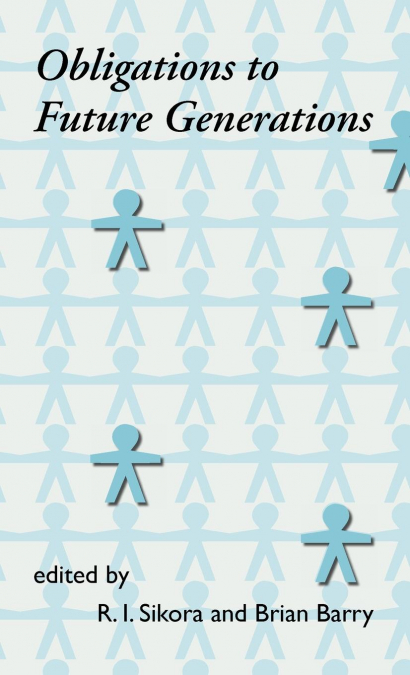
B. Barry / BBarry / R. I. Sikora / RISikora
 Librería Perelló (Valencia)
Librería Perelló (Valencia)
 Librería Aciertas (Toledo)
Librería Aciertas (Toledo)
 El AlmaZen del Alquimista (Sevilla)
El AlmaZen del Alquimista (Sevilla)
 Librería Elías (Asturias)
Librería Elías (Asturias)
 Librería Kolima (Madrid)
Librería Kolima (Madrid)
 Donde los libros
Donde los libros
 Librería Proteo (Málaga)
Librería Proteo (Málaga)
When this seminal collection of essays was first published in 1978, the philosophical ’problem’ of obligations to fixture generations was not widely recognised. But as the contributors point out, the theories that have constituted the stock-in-trade of moral philosophers for the past two hundred years often produce weird and counter-intuitive results when they are extended to try to include those who are as yet unborn. Utilitarianism can appear to recommend practically unlimited population increase, with quantity of life taking precedence over quality; theories based on a social contract present difficulties involving reciprocity - we can affect the lives of future people while they apparently cannot affect ours; while the idea of rights seems difficult to apply to those whose future existence may depend on our present choice of action - do ’potential’ people have a ’right’ to be born?On its original publication, the journal Ethics devoted 30 pages to a review of Obligations to Future Generations, and the book is still frequently and extensively cited and discussed. The philosophical questions raised here centre around ’whether and to what degree it can be morally incumbent on us to make sacrifices to bring happy people into the world or to avoid preventing them being brought into the world’. The implications surrounding this central question are becoming ever more urgent in the light of increasing concerns over dwindling resources, population growth, globalisation and environmental risk. This collection is essential reading for students of ethics and social policy, and for anyone concerned with the relation between the present choices and future chances of humanity.